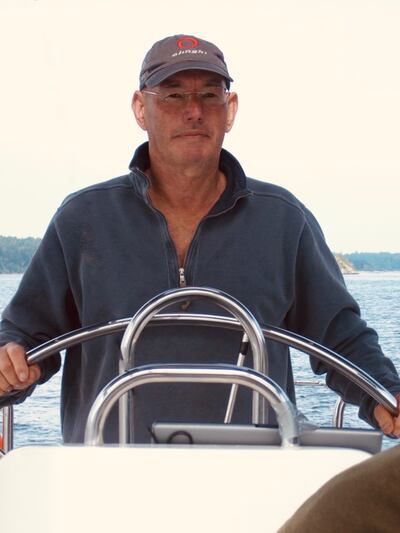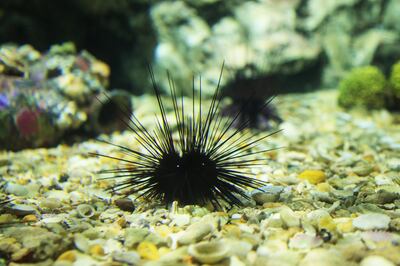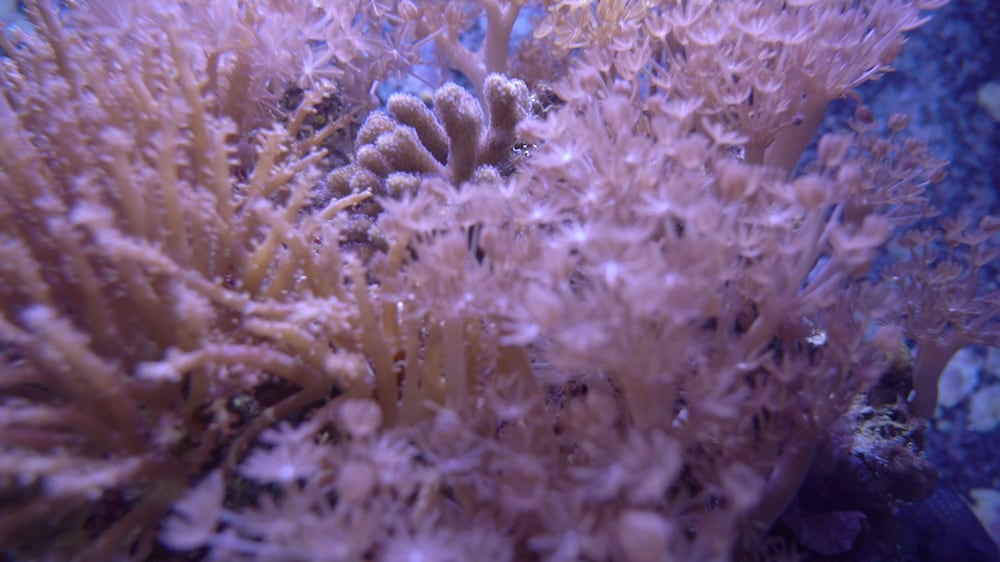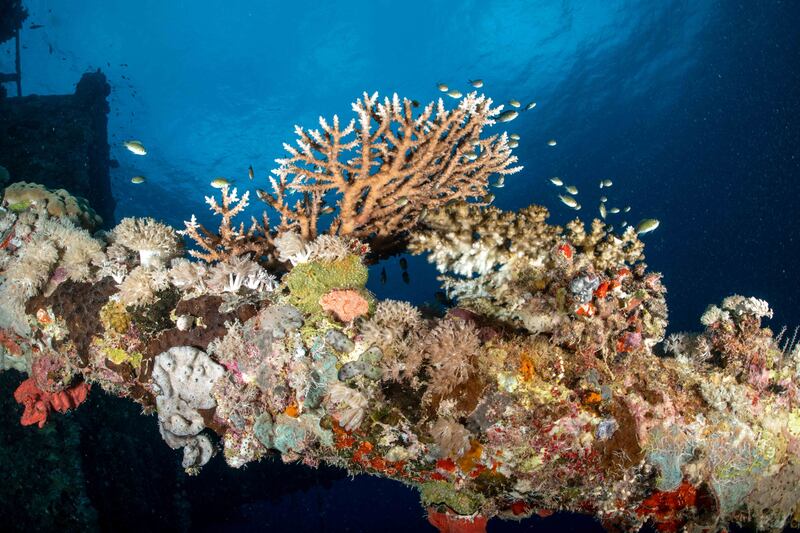A former UAE resident who for many years was responsible for the creation of the country's pavilions at world expos is publishing a book on how to save coral reefs from climate change.
Peter Vine is known for creating the UAE's startling sand dune pavilion at Shanghai Expo 2010. Previously, he was a marine biologist who undertook detailed studies of coral reefs in the Red Sea.
His new book, Growth and Decay of Coral Reefs: Fifty Years of Learning, considers what threats coral reefs face today and how to slow the process.
“In 2015, I was diagnosed with Parkinson's Disease and I wanted to put down on paper my experiences from years ago and compare them with what the situation is today with coral reefs,” he told The National.
Mr Vine said he found all of his notes from the 1970s, and was fascinated by how he described the reefs back then.
“Things have changed so drastically. I wanted to put down a marker to say this is how it was in the 1970s. Back then, I surveyed 30 different reefs in the Red Sea,” he said.
Mr Vine's career includes a posting as a teacher in the Pacific atoll of Tarawa on behalf of the UK's Voluntary Service Overseas organisation.

It was there where he developed his diving skills and researched coral reefs, something he continued with the Red Sea, where he undertook extensive underwater surveys.
Between 1996 and 2015, Mr Vine was a resident in the UAE and working on projects in the country, with his final world expo being at Milan in 2015.
After retiring, he published more findings on his Red Sea research and wrote a memoir called Spirorbis. Now, at 78, the British father-of-three lives in Ireland.
While preparing Growth and Decay of Coral Reefs, Mr Vine worked with illustrator Fiona Martin, who produced images of the fish and coral that he encountered.
One of his key interests has been the “turf war” between algae and coral, and how the presence of herbivores, both fish and invertebrates, helps to limit the growth of algae and to create a more species-rich ecosystem.
Mr Vine demonstrated this with experiments using bathroom tiles attached to reefs. Some of the tiles were protected by wire – and therefore unreachable by herbivores – and quickly became covered with green algae.

One of the challenges coral reefs face today is a loss of herbivores because of overfishing. While tourism developments, land reclamation, plastic and oil polluting, invasive species, dumping and disease also threaten them.
Among the biggest issues is climate change, he said, which warming the oceans and sparking bleaching where corals will expel the tiny algae they normally live in harmony with.
“The alarm bells are going off all over the place,” he said. “It’s frightening to see what will happen.”
The effects are being felt at coral reefs in the Arabian Gulf, which have experienced “devastating losses”, according to John Burt, an associate professor of biology at New York University Abu Dhabi, who researches coral reefs.
“The increasing frequency of marine heatwaves suggests that the prognosis for reefs in the Gulf or elsewhere is not good,” he said.

“The general consensus from reef scientists is that reefs as we know them will cease to exist by 2050 unless there are dramatic changes in fossil fuel use and much more active interventions towards reef conservation and restoration.”
He said that in the Arabian Gulf, coral bleaching has become more frequent and severe over the past three decades as a result of warming caused by climate change.
He said that “one of the most severe events occurred in 2017, where nearly three-quarters of living coral was lost from reefs across the southern Gulf coast of the UAE” and extending to Saudi and Iranian reefs.
There was another severe event in 2021, Mr Burt said, when reefs on the UAE’s east coast and on offshore islands including Sir Bu Nair “lost much of their coral to bleaching”.
“Sadly, we are currently witnessing another mass bleaching, with virtually all corals on our survey sites fully bleached at the moment,” he said.
One thing Mr Vine has observed over the decades is the ability of coral reefs to recover after significant losses.
However, problems such as ocean acidification – a consequence of rising carbon dioxide levels in the air – are very difficult for the coral to overcome back of the harm done to the larval stages of coral.
“There’s only one solution: lower carbon dioxide and greenhouse gases in the ocean. It’s as simple as that,” he said. “If we don’t do that these things will continue to plague us.
“I would question what’s the point in making huge efforts to rescue corals if the conditions in which they’re living are changing so rapidly that the reefs are dying anyway.”
Jordan's Red Sea corals prove resilient against climate change








